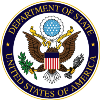Balancing Science with Security: Seeking a Stronger Biological and Toxin Weapons Convention
By: Thomas Countryman, Acting Under Secretary of State for Arms Control and International Security at the U.S. Department of State
Revolutionary advances in the life sciences hold tremendous promise for tackling some of the most serious health challenges humanity faces, from the prospect of curing cancer, to making pharmaceuticals cheaper and more accessible to those in need around the world. But as with many forms of technological progress, such advances have a dark side — they can be misused to turn germs into weapons, and tools used to cure into instruments of terror.
The world’s primary mechanism for addressing the risk of weaponized pathogens is the Biological and Toxin Weapons Convention (BWC), the first multilateral disarmament treaty to ban an entire category of weapons. Next week, delegations from among the 175 States Parties to the Biological and Toxin Weapons Convention will gather in Geneva, Switzerland, to begin a three-week conference to discuss how to best strengthen the treaty and adapt it to contemporary biological threats. This gathering marks the eighth BWC Review Conference — also referred to as the BWC RevCon — which takes place every five years.
Outside diplomatic circles, the BWC doesn’t occupy the spotlight. And meetings on this treaty do not generate international headlines. Yet the BWC is an essential element in the international community’s efforts to prohibit and eliminate a category of weapons the use of which, as the treaty declares, “would be repugnant to the conscience of mankind.”
In achieving its aims, the BWC must strike a delicate balance. Since the BWC entered into force 41 years ago, tremendous advances in the life sciences have made diagnosing and treating diseases much easier. Many countries have and use biological agents and toxins for necessary research and development on a myriad of beneficial health and scientific issues. Without such testing and research, we are hamstrung in developing the newest vaccines or finding effective treatments. Yet the same equipment and technical knowledge used to save lives can also be used to create biological weapons, even by terrorists.
In Geneva, Ambassador Robert Wood, the U.S. Special Representative for Biological and Toxin Weapons Convention Issues, will join me in leading the U.S. delegation to the RevCon. Throughout the conference, the United States will work with other States Parties to reach agreement on ways to strengthen international cooperation in the BWC framework.
Sadly, since the last Review Conference in 2011, chemicals weapons have been used by both states and terrorists, and there are very good reasons to conclude that if terrorist groups obtained biological weapons, they would use them too. And all the while, the life sciences continue their rapid advancement, which, while a great benefit to mankind, also present a risk of misuse. All these factors point to the need to make the function of this treaty more effective.
So, how can we strengthen this treaty? For starters, many States Parties recognize that the current process is not working well. Some argue that major decisions impacting the implementation of the treaty can only be made at these every-five-year RevCons. This is untenable when the threat continues to evolve and technology is developing so rapidly. Parties should agree at the RevCon that, in the future, we can make some key decisions at least once a year.
We would also like to see the creation of true expert level working groups that focus on the critical challenges facing the BWC. Right now, the BWC’s “expert” meetings include far too few real experts. When they do meet, they try to cover a very lengthy agenda in only one short week.
The United States would also like to win agreement among States Parties for more resources for the Convention’s Implementation Support Unit, the equivalent of the BWC’s “secretariat.” At a staff of only three, it clearly needs more funding and staffing, particularly if States Parties agree to a more active work program in the years following the Review Conference.
Among our many detailed proposals to strengthen the BWC, we would like the Review Conference to highlight the importance of states effectively implementing Treaty-required prohibitions in their own domestic laws, regulations, policies, and practices. Without implementation on a national level, the effectiveness of the BWC is reduced and confidence among other BWC signatories that all Parties are following through on their obligations begins to erode.
As the life sciences rapidly evolve, we must be forward-looking. Have we done all we can to help nations prevent bio-terrorism? Are we ready for a rapid and effective international response in the event of a biological weapons attack or natural outbreak? These are issues the U.S. delegation will be tackling in Geneva.
We will work for a consensus document that moves us forward, strengthens the BWC, and addresses the rapidly evolving life sciences in a balanced way. With or without such a document, however, the Review Conference will highlight the broad international acceptance of the norms against owning and using biological weapons. And the United States will continue to remain unwavering in our support for the BWC.
This story originally appeared on DipNote, the U.S. Department of State’s Official Blog.
